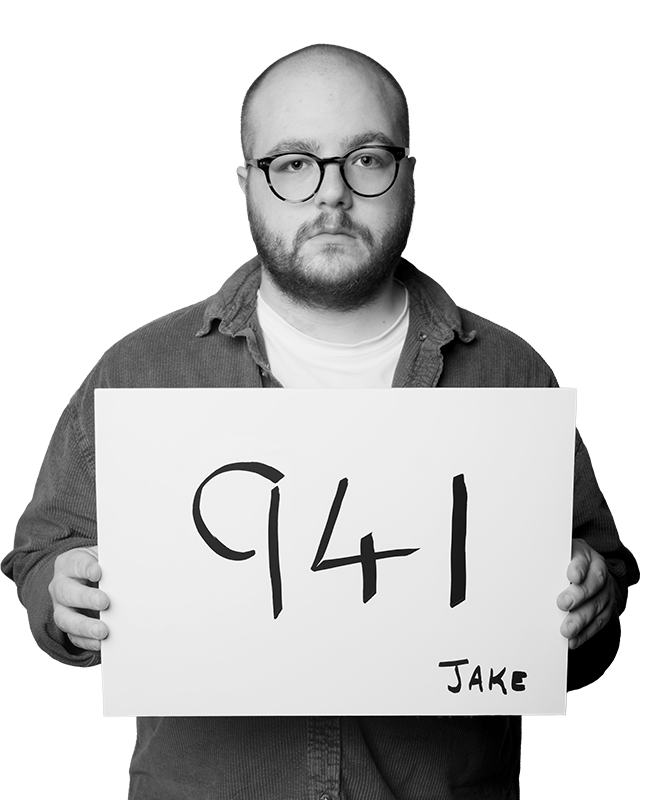
I’m Jake.
It took 941 days.
Don’t delay.
My story
Almost 1 in 3 sarcoma patients wait over 6 months to be diagnosed after their initial appointment.
For every 1 cm increase in the size of a soft-tissue sarcoma at diagnosis, there is a 3-5% decrease in the chance of cure.
Almost a third of sarcoma diagnoses come from a GP referral.
About sarcoma
Sarcoma is a type of cancer that can appear anywhere in the body and affects people of all ages.
About sarcoma
Sarcoma is a type of cancer that can appear anywhere in the body and affects people of all ages.
The number of days it takes to diagnose sarcoma can vary greatly. Help us reduce this time by spreading awareness and supporting research.
Join Sarcoma UK in raising awareness about the importance of early sarcoma diagnosis to reduce the number of days it takes to diagnose this rare cancer.
#DontDelay
Join our campaign
Help raise awareness about the importance of early sarcoma detection.
Upload your photo with your number of days to diagnosis, and we’ll share it with the world.
Read MoreSpread the word
Share our posts on social media throughout July.
We’re sharing stories and photos from people affected by sarcoma. When you share these posts, you encourage others to learn more about this rare cancer, and advocate for change.
Read MoreShape our work
Most people have never heard of sarcoma, but by getting involved with Sarcoma UK, you can help change that.
Raise funds, volunteer or help influence research. We’d love for you to help shape our work.
Read MoreDonate
By donating today, you’re not just giving money – you’re giving time. Time for earlier diagnosis, time for better treatments, and time for those affected by sarcoma to live fuller lives.
Every day counts and your contribution, no matter how small, helps us reduce the days it takes to diagnose this rare cancer.
Read MoreOur impact
Supporting you
We offer a range of support for anyone diagnosed with or concerned about sarcoma. Our Support Line is independent, confidential, and here for anyone affected by sarcoma.
We also provide practical and emotional support, access to support groups, and a rehabilitation hub to ensure anyone diagnosed with sarcoma can benefit from specialist advice.
Pushing for earlier diagnosis
We tirelessly campaign to improve early diagnosis.
Read more about our work bringing together sarcoma expert clinicians to share best practices. We help educate GPs and healthcare professionals physiotherapists and medical students with sarcoma-specific training modules.
Thanks to you, we fund pioneering research to map diagnostic referral pathways and understand regional variations in the diagnostic process for patients across the UK.
Looking for answers
Since we awarded our first grants in 2009, our research programme has come a long way. Since we awarded our first grants in 2009, our research programme has come a long way. Supporting the best and the brightest minds in the sarcoma research community, we have invested almost £7 million in 87 research projects
Substantial grants, major new trials, and new treatments have all demonstrated advances in science at a time when supporters have told us that research is their top priority.
Driving change
Our Delays Cost Lives report calls on policymakers to make faster and more accurate diagnosis a reality for the sarcoma community, recommending a sarcoma education programme for healthcare professionals.
We have since worked with partners to develop an online, accredited training module for GPs, launched an e-learning module with the University of Nottingham to help physiotherapists identify sarcomas, and produced a video to ensure medical students and junior doctors have knowledge of sarcoma symptoms.
Healthcare Professionals
You make life easier for the people we support. We want to do the same for you.
At Sarcoma UK, we offer a range of educational resources and training opportunities to support healthcare professionals in diagnosing and treating sarcoma.
Our comprehensive induction pack, GP diagnostic toolkit, e-learning modules, and collaborations with universities and healthcare organisations aim to enhance your knowledge and skills, ultimately leading to earlier diagnosis and better patient outcomes.












